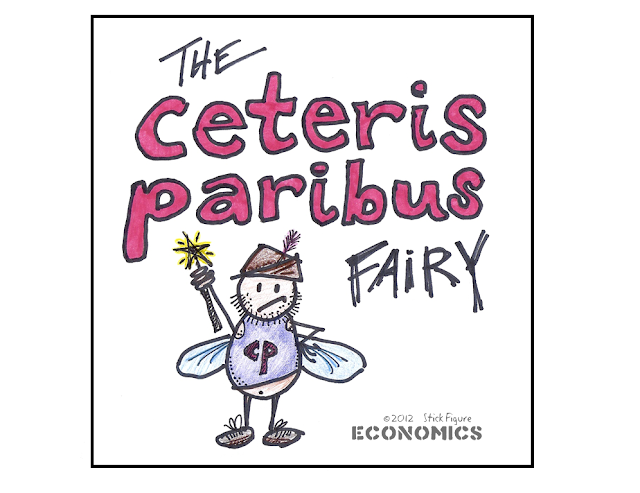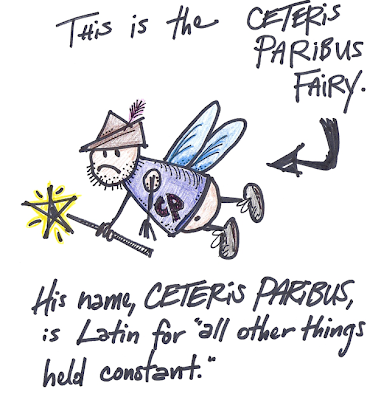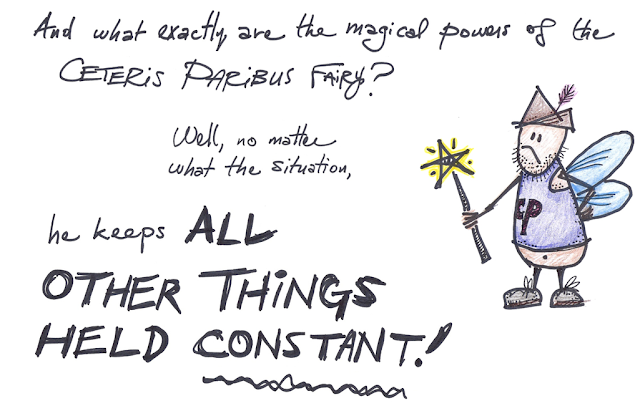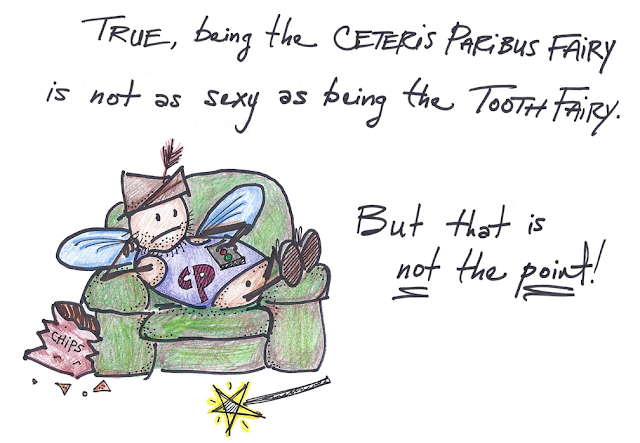This is how I think about the concept of ceteris paribus in economic thought. It’s a nice way to make things work out swimmingly, but reality often paints a different picture. Fairies are a convenient mascot for something like this.
Sometimes the Latin translation varies depending on the source, but the meaning is the same.
The first econ professor I ever had referred to ceteris paribus as “KET-err-iss”, and I can’t seem to quit pronouncing it like that, even though it’s not the correct Latin pronunciation.
It’s not bippity boppity boo or anything that amazing, but still.
Ceteris Paribus Fairy doesn’t care about sexiness. Might he need a shave and a gym membership? Perhaps. But who are we to judge?
Again, he’s not turning teeth into money or anything that amazing.
But it’s still an important power to wield, at least in economics.
Really, he is.
Without the magical presence of the Ceteris Paribus Fairy, Hootie is not a good dog when he goes on walks.
In fact, most of the time, he is a complete spaz on walks.
That's because without the Ceteris Paribus Fairy around to hold all other variables constant, Hootie (the well-meaning dog that he is) is easily distracted. And my chances of being dragged along as he chases a squirrel up a tree are increased. By a lot.
In essence, the Ceteris Paribus Fairy allows us to make predictions with confidence about Hootie’s behavior
during a walk, regardless of the environment or circumstances.
"What gives?" you might say. Why even bother with the Ceteris Paribus Fairy when he never seems to be around in real life?
Well, the answer is because he's an essential part of basic economic theory. And if you, a hapless student of economics, refuse to believe in the existence of the Ceteris Paribus Fairy, you'll doubtlessly end up thinking too much about what else could happen in the situation at hand. It's a flaw most smart, logically-thinking people fall into. On economics exams, it often results in wrong answers and bad exam grades.
So go ahead. Take advantage of the Ceteris Paribus Fairy. In fact, he wants you to. Really. And your grades might just thank you for it.
--------------------------------------------------------------------------------------------------------------------------
Like these graphics? Want to use them in your classroom? Click here to buy the PowerPoint file, and thanks for your support!











Quick note on pronunciation: Both pronunciations are correct. "Ket-" is classical latin. "Set-" is church latin in a part of the world influenced by germanic/slavic languages. "Chet" is church latin in an a part of the world heavily influenced by Italian.
ReplyDeleteIt's not the germanic/slavic influence. It's the natural evolution of latin languages post-Rome. In fact, if you look at the germanic word for emperor, Kaiser, you may notice that from antiquity until today it is still pronounced with a hard k, much like the classical form of Caesar was millenia ago, which is exactly where they got the word from...
Deleteecclestical latin (church): tshe
ReplyDeletemany other languages like german: tse
real reconstructed classical latin: ke...
your K-ayterees Pahreeboos is correct :D
Fantastic! Thank you - I used it for my economics class.
ReplyDelete